An equity audit was conducted to analyze opportunities and involvement for all community members within Framingham's municipal government.
FRAMINGHAM - Results from a recent local government equity audit were presented to the Framingham City Council on Tuesday, October 7.
Framingham was provided with a $50,000 grant from the state’s Best Practices Community Compact program in order to investigate the city’s practices and policies through the scope of diversity, equity, and inclusion (DEI) principles. Racial Equity Group (REG), a consulting firm based out of Texas, was given a contract in April 2024 to conduct the audit, and the findings from that process were unveiled at the Memorial Building this week.
The presentation on Tuesday was given by REG’s President and CEO Bird Guess, who said that the study aimed to determine whether or not equal opportunities are being are being provided for all stakeholders to be employed by the city, to conduct business with the city, to obtain access to local services and resources offered by the municipal government, and to serve on local boards and committees. Guess explained to the City Council that REG utilized data along with surveys from civic employees to reach their conclusions, adding that the presentation provides just one snapshot of recent data. He believes the findings can help start a conversation on these matters within Framingham’s government.
“These questions really dig deep into the core operations of city government…Our motto and our approach is: if you don’t have data, then all you have is an opinion about if there’s equal opportunity.”
Through their analysis of employment availability—the estimate of the proportion of a race or ethnic group within an area looking for civic government employment or who already have a government job—along with census data, REG found that the available white and Hispanic or Latino workforce for Framingham’s government is typically higher than that within nearby counties (Middlesex, Norfolk, and Worcester Counties were analyzed in this study as well). Conversely, the black and Asian workforce has represented a smaller portion of the relevant labor pool.

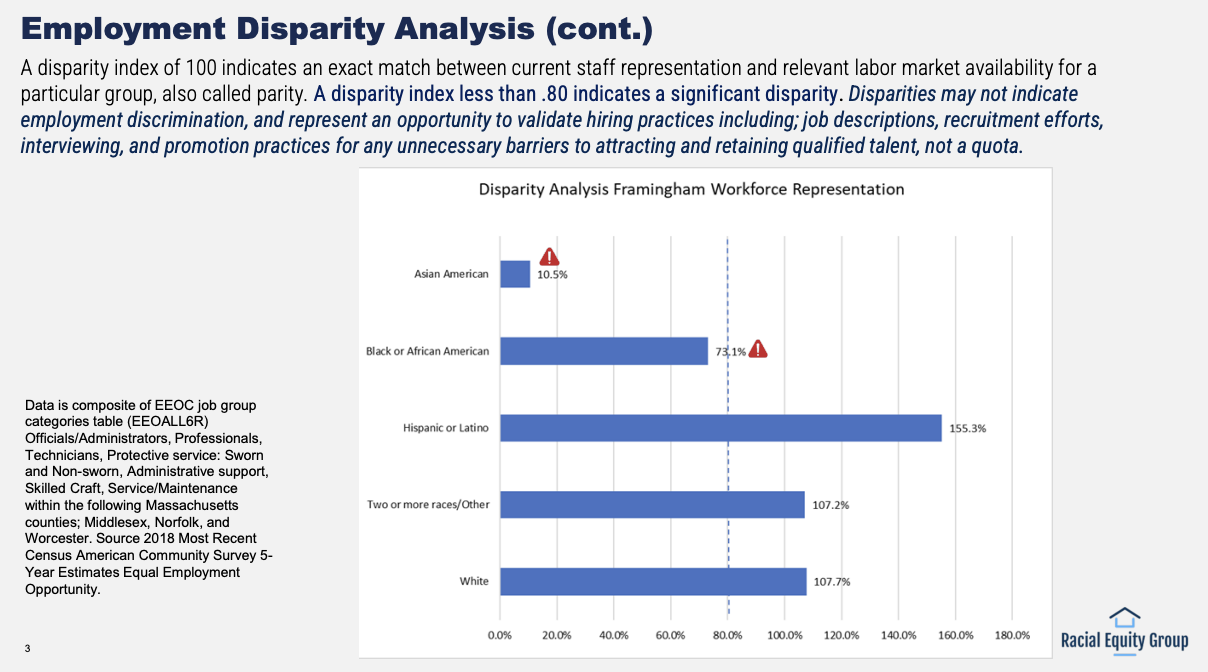

Guess reiterated to local officials that findings from the study are not indicative of any racist or discriminatory practices within the local government, nor are the benchmarks meant to be seen as a quota for Framingham to meet. He explained that the study is meant to present insight so that strategies can be developed in the future.
“Those disparities can happen by chance or accident…We want to take a deeper look and to understand why these groups are not being employed at what we would reasonably expect them to be,” Guess continued.
Data from REG also showed that men are overrepresented by 36% within the municipal government, while women were underrepresented within the overall relevant workforce—especially within categories like technical positions, police and fire roles, and service maintenance jobs. Guess added that males are not significantly underrepresented within any major category in the local government’s relevant job pool.
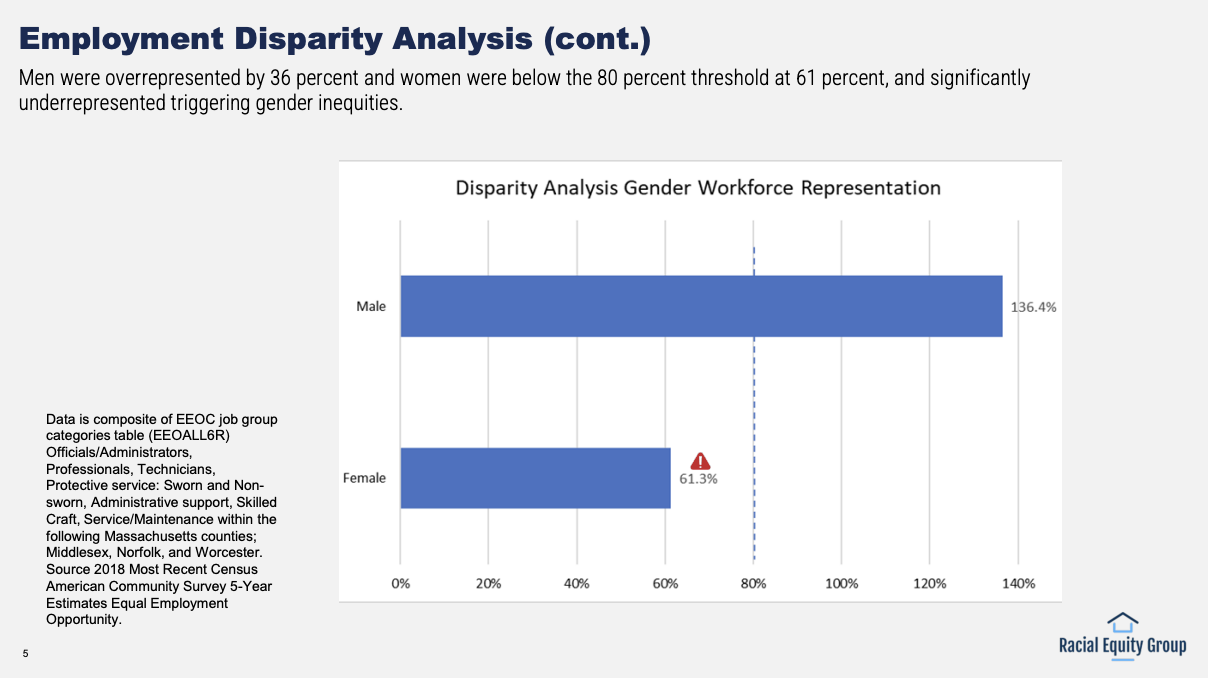
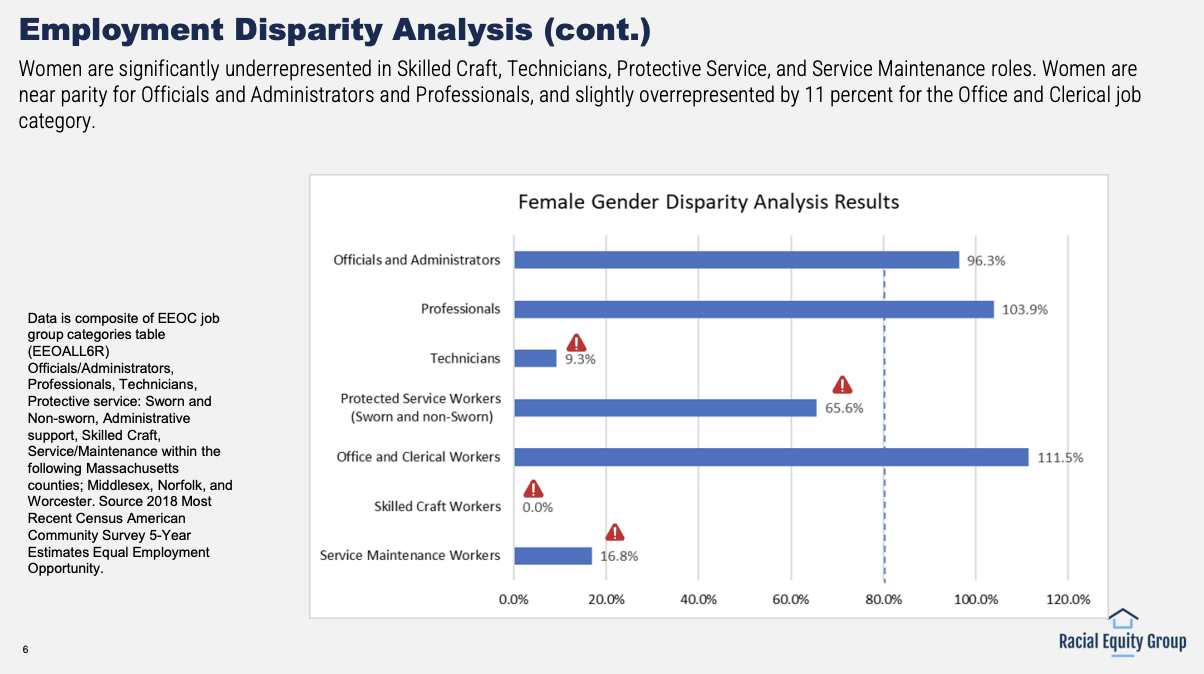
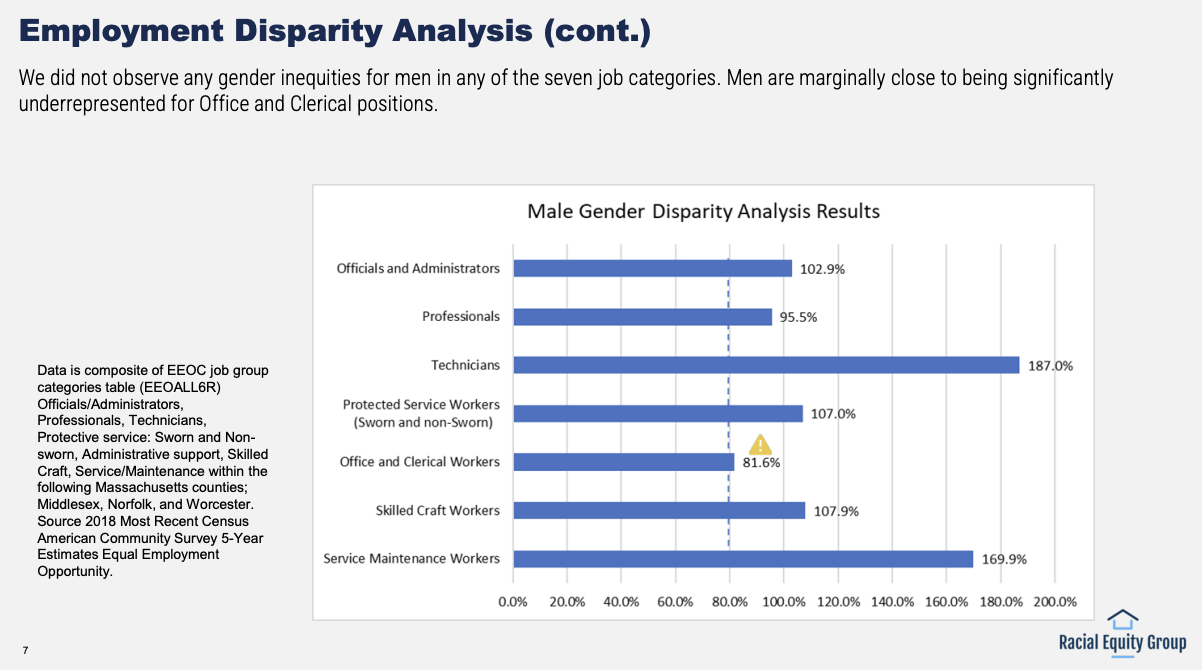
Guess told local legislators that REG was not able to analyze if there’s an equitable opportunity to do business with the city, since Framingham officials are not tracking demographic data for vendors and contractors.
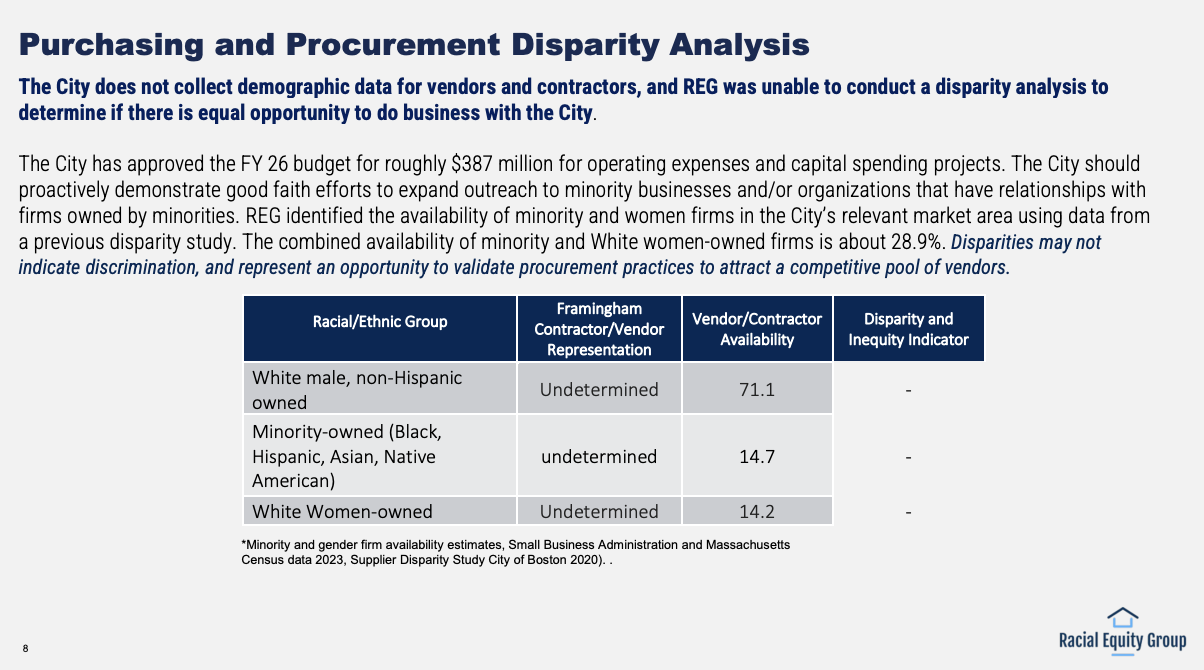
Similarly, Guess said that a lack of relevant data meant that REG was not able to identify any inequities for access to important local services and programs. He recommended that Framingham leaders launch a community survey to determine equitable access for those resources, as he advised that elements and demographics outside of race and gender should also be considered.
“This is important, because we want to be able to know if there’s equal access,” Guess said on Tuesday.
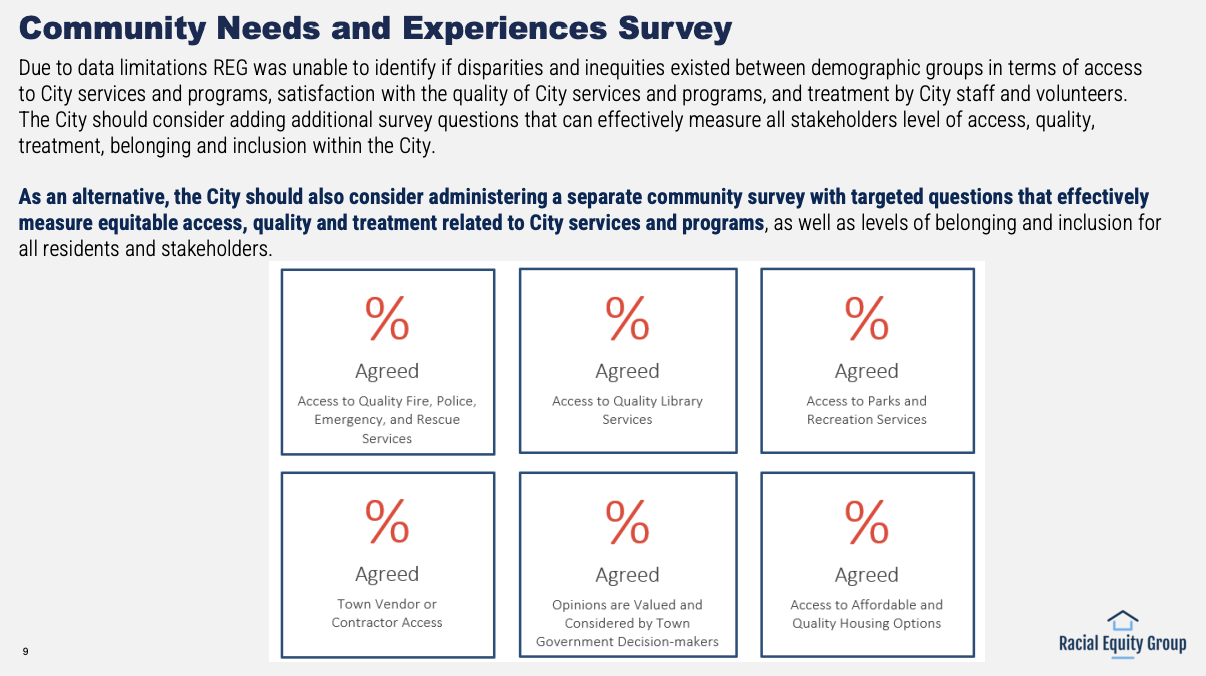
Guess mentioned that voluntary data collected by REG—meaning a limited data pool—found that civic volunteer representation among Hispanic or Latino individuals, as well as Asian Americans and those who are two or more races, has represented a smaller share compared to their makeup within the local population; Hispanics and Latinos made up nearly 19% of the city’s demographics in the 2020 census, for example, though they represented just 6% of the members on local boards, commissions, and committees last year.
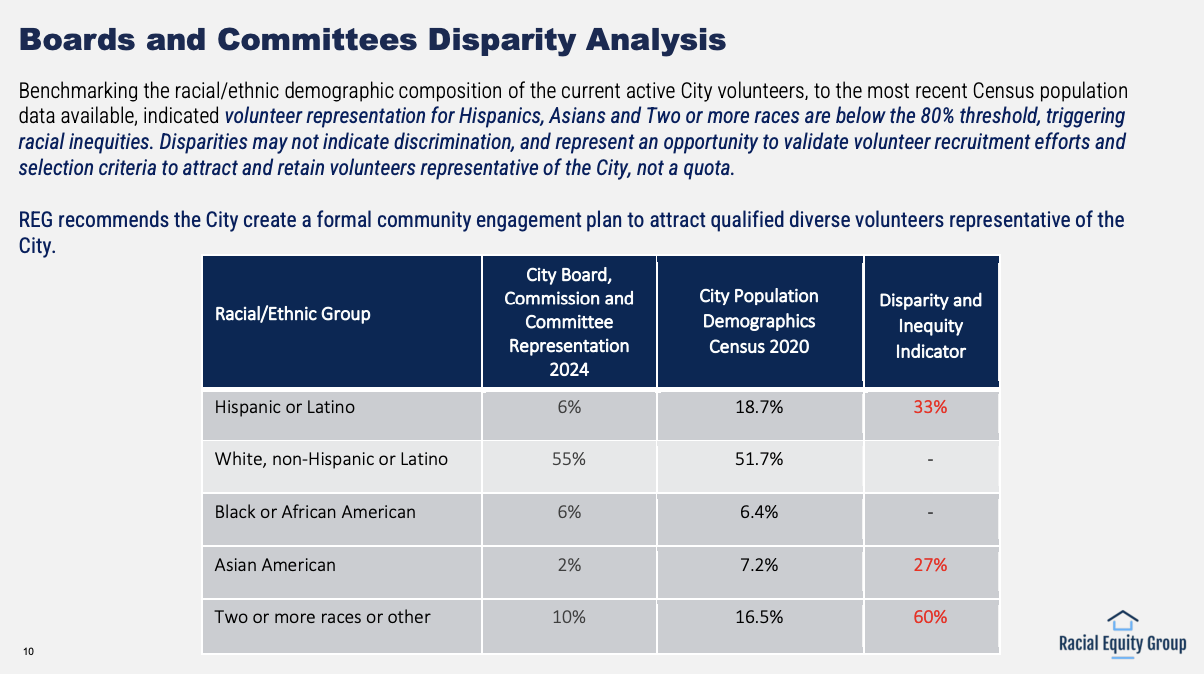
Through that aforementioned data alongside a 34-question DEI survey provided to more than 700 local government members—of which just over 300 responses were received—REG determined that Framingham’s DEI commitment is at a compliant level, as the city scored a 3.63 points out of a possible 5. Guess said the score is meant to provide an initial benchmark for local leaders.
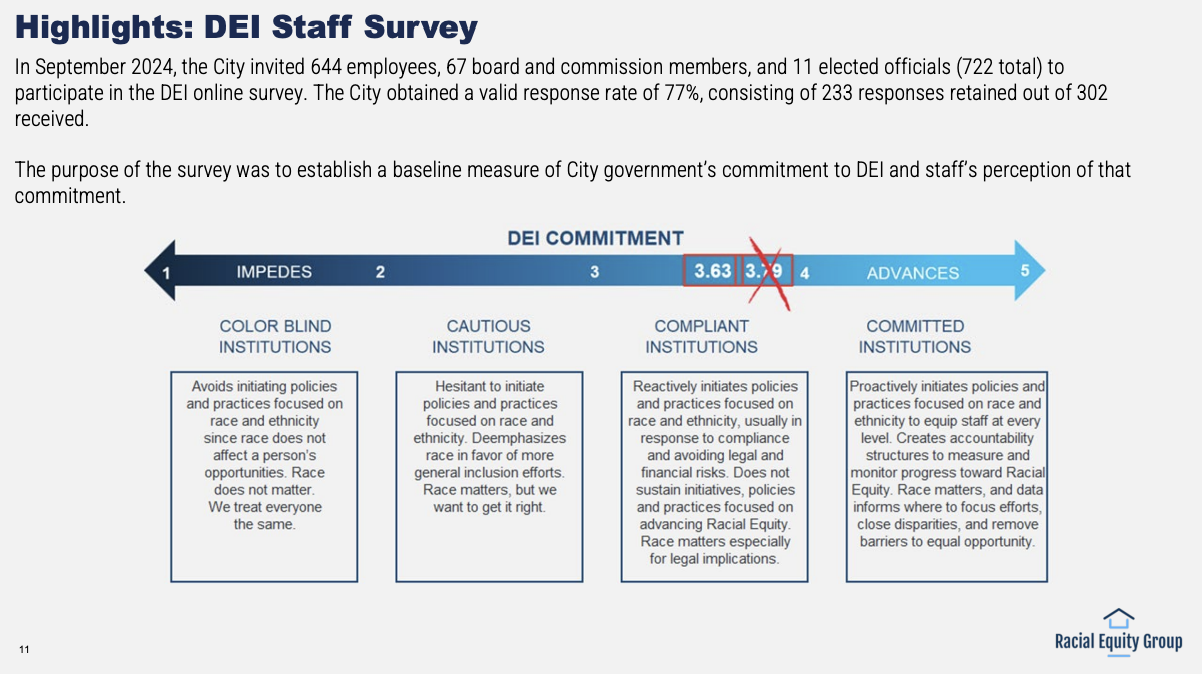
“This speaks to a lot of the foundational work that has been done in terms of DEI,” Guess explained, “and so that’s something that you want to continue to build upon to move us into that ‘committed’ category.”
Guess mentioned the survey findings indicated that lower percentages of both white staff members as well as staff of color reported to have never seen instances of the city treating employees unfairly or inconsiderate of their perspectives due to demographic factors.
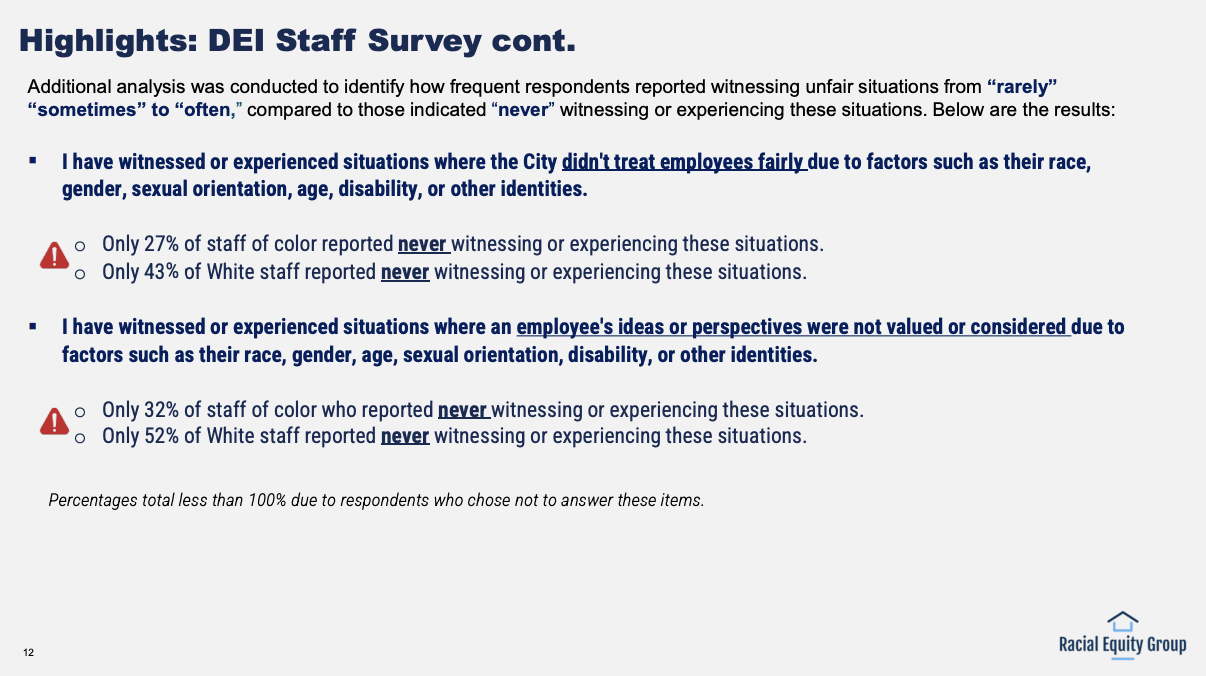
With those data points in mind, REG has recommended that officials attract and retain a wide range of candidates to work within the municipal government, track data relevant to equitable opportunities for contractors and vendors, and to conduct a survey across the city to determine the level of satisfaction among community members in regards to accessibility for resources and to define needs within Framingham.
District 2 City Councilor Brandon Ward said he appreciated the insight during Tuesday’s meeting, though he did point out that Framingham’s demographics are a bit different than the demographics of neighboring communities in the trio of counties studied.
“Even if our hiring mirrors the metro counties, great; that’s our hiring pool,” Ward said.
“But we should also be acknowledging that it might not still represent our community, and that maybe we want to strive for something better or even higher than our surrounding communities.”
Tracey Bryant of District 9 said that the data regarding the amount of people—or lack thereof—who had never seen unfair or inconsiderate treatment was a significant data point. She added that employees might be fearful to actually present their true feelings on that front, though she believes the data presented on Tuesday does “tell a story.”
District 4 City Council member Michael Cannon told Guess that he was hoping to hear more information and data related to people with disabilities. Guess said that similar recruitment and outreach efforts should be taken for that group as well, along with other groups such as veterans.
Framingham’s DEI Officer Jesse Edwards said that he and other city officials will be considering their next steps on this topic in the coming months. He told the City Council that an update will be provided in four months.